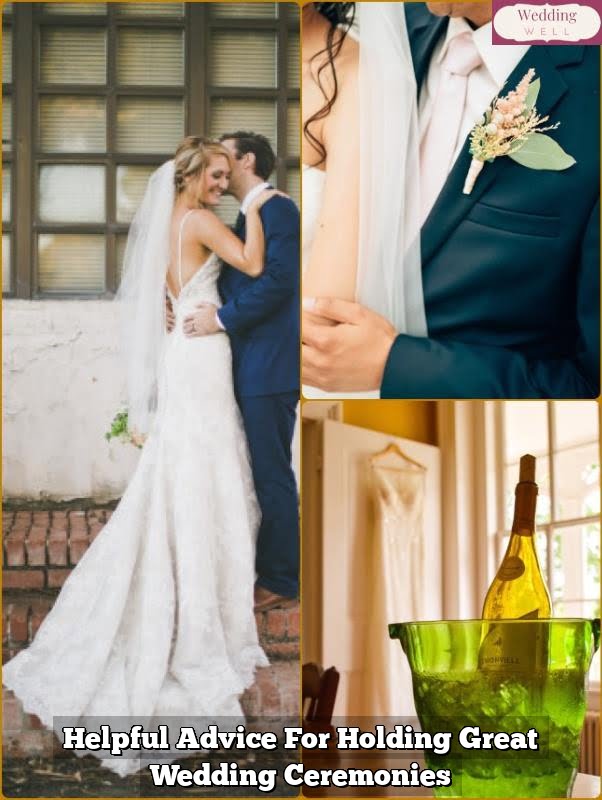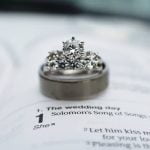Have you ever wondered how long wedding ceremonies typically last? The length of a wedding ceremony is an essential aspect of wedding planning, as it sets the tone for the entire event and impacts various other logistical elements.
From cultural traditions and religious customs to personal preferences, there are several factors that can influence the duration of a wedding ceremony. Understanding the significance of this aspect and knowing how to manage it can greatly contribute to the success of your special day.
When it comes to planning a wedding, one of the most crucial decisions couples need to make is determining how long their ceremony will be. Factors such as cultural traditions, religious customs, and personal preferences all play a role in shaping the length of a wedding ceremony. It is important for couples to consider these factors and plan accordingly in order to ensure that their ceremony reflects their values and beliefs while also fitting within their desired timeframe.
In this article, we will explore the various factors that can affect the length of a wedding ceremony, ranging from traditional customs to non-traditional styles such as destination weddings and elopements. We will also provide practical tips for managing the length of your wedding ceremony and share real-life examples from couples who have experienced different lengths of ceremonies on their special day.
By understanding the importance of a well-planned timeline and considering all relevant factors, couples can ensure that their wedding ceremony runs smoothly and enhances the overall joy of their celebration.
Factors Affecting the Length of Wedding Ceremonies
The length of a wedding ceremony can be influenced by a variety of factors, including cultural traditions, religious customs, and personal preferences. These elements play a significant role in shaping the overall atmosphere and duration of the ceremony. Understanding these factors is crucial for couples as they plan one of the most important days of their lives.
Cultural traditions often dictate the length of wedding ceremonies, with some cultures incorporating multiple rituals and customs that can extend the duration of the event. For example, Indian weddings are known for their elaborate ceremonies, including traditional rituals like the Saptapadi (the seven steps around the sacred fire) and the Mangal Pheras (circling the holy fire). Similarly, Japanese Shinto weddings involve several symbolic actions that add to the length of the ceremony.
Religious customs also have a significant impact on how long wedding ceremonies last. In Christianity, for instance, the length of the ceremony can vary depending on whether it is a full mass or a non-mass service. Additionally, Jewish weddings may include rituals such as circling seven times under the chuppah or reciting Sheva Brachot (seven blessings), which contribute to the overall duration.
Personal preferences also play a vital role in determining how long wedding ceremonies last. Some couples may opt for shorter ceremonies to accommodate guests or due to personal beliefs about what feels right for them. Others may choose to incorporate additional readings, musical performances, or other personal touches that extend the length of their ceremony according to their individual desires.
- Cultural traditions
- Religious customs
- Personal preferences
Traditional Wedding Ceremony Timeline
A traditional wedding ceremony typically follows a specific order of events that have been passed down through generations. It usually begins with the procession, where the wedding party enters and takes their places, followed by the officiant’s welcome and opening remarks. The next segment is the exchange of vows and rings, often accompanied by readings or musical performances. This is followed by the pronouncement of marriage, the first kiss as a married couple, and the recessional.
The amount of time it takes to complete each of these segments can vary depending on factors such as the number of guests, the chosen readings or music, and any additional rituals or customs that are incorporated into the ceremony. On average, a traditional wedding ceremony lasts between 30 minutes to an hour from start to finish. However, religious ceremonies may be longer due to specific customs or requirements.
| Segment | Estimated Time |
|---|---|
| Procession | 5-10 minutes |
| Opening Remarks | 5-10 minutes |
| Exchange of Vows and Rings | 10-15 minutes |
| Pronouncement of Marriage/First Kiss/Recessional | 5-10 minutes |
It’s important for couples to consider potential time constraints when planning their weddings and deciding which elements they want to include in their ceremony. By having a good understanding of how long each segment typically takes, couples can make informed decisions about which traditions and rituals they want to incorporate while still ensuring that their ceremony fits within their desired timeframe.
Non-Traditional Wedding Ceremonies
Destination weddings, for example, often involve a more relaxed and laid-back atmosphere, with beautiful scenic backdrops that can extend the overall duration of the event. On the other hand, elopements are typically much shorter in length, focusing solely on the vows and commitment between the couple without additional ceremonial elements.
Themed ceremonies, such as those inspired by pop culture or historical eras, can also vary in length depending on how elaborate they are in terms of costumes, performances, and rituals.
- Destination weddings often last longer due to the extended celebration
- Elopements tend to be shorter and focus primarily on the exchange of vows
- Themed ceremonies can vary in length depending on their level of intricacy
Regardless of the type of non-traditional wedding ceremony chosen, it is essential for couples to communicate their desired timeline with their officiant or planner to ensure that all aspects of their special day align with their expectations.
When planning a non-traditional wedding ceremony, couples should consider how long they want their ceremony to last and work closely with vendors and professionals who specialize in creating unique wedding experiences. By articulating their vision clearly, couples can achieve a meaningful ceremony that suits their individuality while respecting personal boundaries and cultural significance.
- Communicate expectations with officiant or planner
- Work closely with vendors who specialize in non-traditional weddings
- Articulate vision clearly to achieve a meaningful ceremony
Tips for Managing the Length of Your Wedding Ceremony
When it comes to planning a wedding, one of the most significant considerations for couples is the length of their wedding ceremony. The duration of the ceremony can impact the overall flow of the day, as well as the comfort level of both the couple and their guests. Fortunately, there are several tips and strategies that couples can employ to ensure that their wedding ceremony fits within their desired timeframe while still capturing the essence of their love and commitment.
Choosing the Right Rituals and Readings
One of the most effective ways to manage the length of your wedding ceremony is by carefully selecting rituals and readings that hold personal meaning. While traditional ceremonies may include multiple rituals such as lighting candles or exchanging rings, couples can opt for a more streamlined approach by choosing just one or two meaningful rituals. Similarly, selecting shorter readings or personalized vows can help keep the ceremony concise while still conveying heartfelt sentiments.
Working With Your Officiant
Collaborating with your officiant is crucial in ensuring that your wedding ceremony aligns with your desired timeframe. Communicate openly with your officiant about your preferences for the length of the ceremony and any specific elements you want to include. Experienced officiants can offer valuable guidance on structuring the ceremony in a way that feels authentic to you as a couple while also adhering to time constraints.
Consider Your Guests’ Experience
While managing the length of your wedding ceremony is important, it’s also essential to consider your guests’ experience. Aim for a balance between capturing meaningful moments and respecting everyone’s time. If you anticipate that certain elements may extend the length of your ceremony, consider providing comfort amenities such as water or shaded seating to ensure that everyone remains comfortable throughout the celebration.
By implementing these tips, couples can navigate through their wedding planning process with confidence, knowing they have effectively managed the length of their ceremony without compromising its significance or emotional impact.
Real Life Examples
When it comes to wedding ceremonies, there is no one-size-fits-all answer to the question of how long they should last. Every couple has their own preferences and unique circumstances that can impact the length of their ceremony. To shed some light on this topic, let’s take a look at some real-life examples from couples who have experienced different lengths of wedding ceremonies and how it impacted their special day.
Short and Sweet
For some couples, a short and sweet wedding ceremony is exactly what they desire. Sarah and Michael opted for a simple civil ceremony that lasted no more than 15 minutes. “We wanted to keep the focus on our love and commitment to each other without any unnecessary frills,” Sarah explains. For them, the brevity of their ceremony allowed them to spend more time celebrating with their loved ones afterward.
Full-Fledged Tradition
On the other hand, Samantha and David chose to have a traditional church wedding complete with all the customary rituals and readings. Their ceremony lasted approximately an hour and a half. “We both come from deeply religious families, so it was important for us to incorporate those elements into our ceremony,” says David. While it was longer than some ceremonies, the couple felt that every moment was meaningful and reflective of their values.
Destination Delight
In contrast, Jenna and Marco opted for a destination wedding on a beautiful beach overlooking the ocean. Their ceremony was around 45 minutes long but felt much more relaxed compared to traditional weddings. “Having our toes in the sand while saying our vows made everything feel so much more intimate and memorable,” says Jenna. The shorter length allowed them to fully enjoy their surroundings without feeling rushed.
These real-life examples demonstrate that the length of a wedding ceremony can greatly impact the overall experience for couples on their special day. Each couple’s unique circumstances, values, and preferences play a significant role in determining how long their ceremony should be. Ultimately, finding the right balance between tradition, personal meaning, and practical considerations is key in creating a memorable wedding ceremony.
The Importance of a Well-Planned Timeline
Planning a wedding requires careful consideration of many different elements to ensure the day runs smoothly. One of the most crucial aspects of the wedding planning process is creating a well-planned timeline, including the ceremony. A detailed wedding day timeline is essential in ensuring that the event progresses as intended, and that all involved parties are on the same page.
A well-planned timeline for the wedding day helps to create a sense of order and structure, which can alleviate stress and anxiety for both the couple getting married and their guests. It ensures that everyone knows where they need to be at any given time, reducing the risk of delays or confusion. This is particularly important during the wedding ceremony itself, as it sets the tone for the rest of the event.
Additionally, a well-planned timeline allows for flexibility in case unexpected situations arise. For example, if there is a delay in one part of the day, having a detailed schedule in place will enable quick adjustments to minimize disruptions to other parts of the event. Ultimately, creating a comprehensive timeline ensures that every aspect of the wedding day is accounted for, helping to make it as enjoyable and memorable as possible for all involved.
| Importance | Benefits |
|---|---|
| Creates order and structure | Alleviates stress and anxiety |
| Allows for flexibility | Minimizes disruptions |
Conclusion
In conclusion, the length of a wedding ceremony is a crucial aspect of wedding planning that can greatly impact the overall feel and flow of the event. As discussed in this article, there are numerous factors that can affect the duration of a wedding ceremony, such as cultural traditions, religious customs, and personal preferences. Couples must carefully consider these factors when planning their special day to ensure that their ceremony reflects their values and desires.
While traditional wedding ceremonies follow a specific timeline with various segments, non-traditional ceremonies offer flexibility and the opportunity for creative expression. Whether it’s a destination wedding, elopement, or themed ceremony, couples have the freedom to design a unique experience that aligns with their vision for their special day. However, it’s important for couples to manage the length of their ceremony and work closely with their officiant to ensure that it fits within their desired timeframe.
Ultimately, the ideal length for a wedding ceremony is subjective and varies based on personal preferences and practical considerations. Some may prefer a brief and intimate ceremony while others may opt for a longer and more elaborate affair.
Regardless of the length, what truly matters is that the ceremony authentically reflects the love and commitment between the couple. By carefully considering all factors and planning accordingly, couples can create a memorable wedding ceremony that perfectly suits their individual preferences and makes for an unforgettable celebration of love.

Welcome to my blog about home and family. This blog is a place where I will share my thoughts, ideas, and experiences related to these important topics. I am a stay-at-home mom with two young children. I hope you enjoy reading it! and may find some helpful tips and ideas that will make your home and family life even better!





